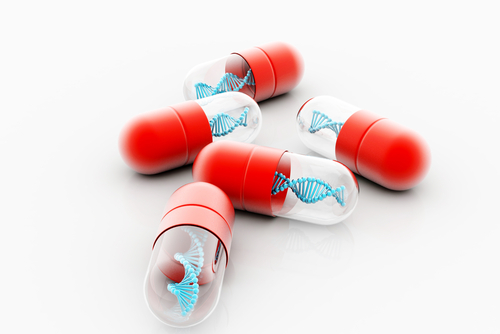AskBio Acquires BNB and Gene Therapy Now in Parkinson’s Trials
Written by |

Brain Neurotherapy Bio (BNB) has joined with Asklepios BioPharmaceutical (AskBio), a merger aiming to expand a gene therapy program for progressive neurodegenerative diseases such as Parkinson’s and multiple system atrophy (MSA), a form of atypical parkinsonism.
“I’m pleased to welcome the Brain Neurotherapy Bio team to AskBio,” Sheila Mikhail, co-founder and CEO of AskBio, said in a press release.
“We are grateful for the collaboration we’ve had with AskBio and are honored to jointly accelerate clinical development of our gene therapy programs that we hope will benefit patients and families,” said Krystof Bankiewicz, MD, PhD, founder and CEO of BNB.
The company is now an integrated unit of AskBio, it states on its homepage.
BNB’s lead clinical program is based on a small protein known as glial cell line-derived neurotrophic factor, or GDNF. This protein supports the growth, survival, and differentiation of dopaminergic neurons, which are gradually lost to Parkinson’s.
The gene therapy uses a disease-modifying adeno-associated virus (AAV2) to deliver the GDNF gene to specific brain areas. In this way, it induces the production and release of the GDNF protein to promote the health and survival of neurons damaged by the disease.
The therapy is administered using intraoperative magnetic resonance imaging (iMRI), which guide its delivery directly to targeted cells of the putamen, the brain structure responsible for movement. iMRI guidance is intended to improve the treatment’s precision, safety, and effectiveness.
“They [BNB] bring two active clinical programs, proprietary delivery technologies and unique clinical expertise in CNS [central nervous system] indications, including the clinical translation and development of neurotrophic factor gene therapy,” Mikhail said.
An open-label Phase 1b study (NCT01621581), sponsored by a branch of the National Institutes of Health, is evaluating the safety, tolerability, and effectiveness of four escalating doses of AAV2-GDNF in 25 adults with advanced Parkinson’s and bradykinesia (slowness or difficulty with movement) at a single site in Maryland.
Patients given a single surgical infusion of the therapy are being followed for five years while undergoing clinical, laboratory, neuropsychological and neuroimaging testing. This trial is expected to conclude in February 2022.
Another Phase 1b trial (NCT04167540), sponsored by BNB, is evaluating the safety and effectiveness of the gene therapy in 12 patients, ages 35 to 75, with early to moderate Parkinson’s. The first patient was treated in August, and enrollment may still ongoing at clinical sites in California and Ohio. Information is available here.
The trial will evaluate the safety and tolerability of a single, bilateral therapy infusion to the putamen, and monitor treatment-related adverse events for five years. Secondary goals include measures of changes in Parkinson’s motor and non-motor symptoms and of dopaminergic cell integrity for up to 18 months.
A separate, randomized and placebo-controlled Phase 1 study (NCT04680065) in MSA patients — who share many symptoms and characteristics with Parkinson’s patients — is expected to open soon at sites also in California and Ohio; contact and other information is here.
This trial, also sponsored by BNB, plans to enroll nine patients, ages 35 to 75, who will be randomly assigned to treatment or placebo surgery.
Researchers will monitor treatment-related adverse events for three years. In the first year, they will also assess MSA symptoms, quality of life, and changes in dopamine transporter binding — a protein that works to recycle dopamine.
“We look forward to advancing this innovative technology as part of our strategy to broaden gene therapy beyond diseases caused by a single gene to complex pathway disorders,” said Kathy High, MD, president of AskBio.
AskBio is a wholly owned, independently operated subsidiary of Bayer.


